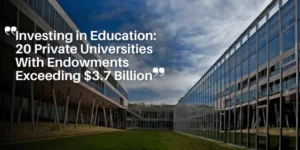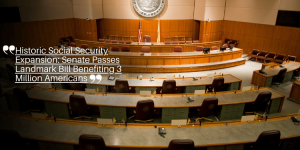Ottawa Vows $750M to Cover Quebec Immigration Expenses, but Without Clear Reduction Goals

In a move aimed at addressing the financial burden associated with temporary immigration, the federal government has pledged $750 million to support Quebec’s social services for newcomers.
This amount, although substantial, fell short of the $1 billion that Premier François Legault had requested.
The funding, intended to cover expenses incurred from 2021 to 2023, was made public during a news conference after Legault’s meeting with Prime Minister Justin Trudeau in Quebec City.
Background: Quebec’s Financial Request
Since February, Premier Legault has been urging Ottawa to reimburse Quebec for the considerable costs associated with the influx of temporary immigrants.
The Legault government argues that over half a million temporary immigrants have arrived in the province, putting an immense strain on public services such as healthcare, housing, and social assistance.
Despite these figures, the federal government’s offer of $750 million falls short of the province’s initial demand, leading to a mixed response from Quebec’s leadership.
Premier Legault’s Expectations and Response
Premier Legault expressed disappointment over the federal government’s reluctance to commit to specific, quantifiable objectives for reducing the level of temporary immigration.
He stressed the urgency of the issue, indicating a target to reduce the number of asylum seekers by 50% within a year. “I think it’s about time that we put targets with figures,” Legault asserted.
“The problem is urgent, so we cannot say we’ll continue working for months and months about the principles.”
Despite the shortfall, Legault confirmed that Quebec would accept the $750 million while persisting in its efforts to secure additional funds.
He emphasized the critical need to not only provide financial support but also to cut down waiting times for issuing work permits to refugee claimants, enabling them to enter the workforce more swiftly and off social assistance.
Addressing Social Assistance and Housing Needs
Recent data from Quebec’s Labour Ministry underscores the extent of the challenge.
The province received 80,151 requests for social assistance between March 22 and November 21, 2023, compared to 72,221 for the same period in 2022 — marking the largest jump in social assistance requests in 25 years.
The monthly average of asylum seekers more than doubled from 2022 to 2023, going from 19,455 adults to just over 40,000, thereby exerting pressure on the social safety net.
The surge in immigration has, according to Premier Legault, necessitated 120,000 new housing units.
He pointedly attributed 100% of the housing problem to the increased influx of temporary immigrants, of which he stated about a third are asylum seekers.
Federal Response and Proposed Measures
In his response, Prime Minister Trudeau acknowledged the challenge and indicated that the federal government is considering several measures to alleviate Quebec’s burden.
These include transferring temporary immigrants to other provinces, imposing French language requirements on certain categories of immigrants, expediting visa processes, and deporting asylum seekers whose claims have been rejected more swiftly.
Welcoming the federal government’s acknowledgement of the issue, Legault noted, “At least the federal government recognizes that there is a problem. It acknowledges the need for immediate action but declines to specify any figures.”
Immigration and Population Growth
The demographic impact of immigration on Quebec is notable.
According to data from the Institut de la Statistique du Québec (ISQ), almost all regions in Quebec experienced population growth between July 2022 and July 2023, with Montreal seeing the most significant increase.
Montreal’s population grew by 89,600 — a 4.3% rise compared to the province’s overall growth rate of 2.3%.
The primary factor for this growth was identified as temporary immigration, driven by a significant rise in non-permanent residents, such as temporary foreign workers, asylum seekers, and international students.
Concerns were echoed by Trudeau, who resisted attributing the housing, education, and social services issues solely to immigrants.
“Trudeau remarked that Quebecers and Canadians know it’s not right to blame immigrants for all problems.”
“This is something that some people bank on in their argument, but it is always more complex than that.”
Constitutional and Political Dynamics
Further complicating the scenario is Quebec’s initiative to explore maximizing its autonomy within the framework of Canada’s Constitution.
Premier Legault, influenced by pressures from the Parti Québécois (PQ), has established a committee of experts tasked with identifying strategies to enhance Quebec’s constitutional powers.
While some might view this as a threat to national unity, Trudeau reassured that there was “nothing inherently threatening about a province deciding to look at ways of improving our democracy.”
Future Steps and Uncertainties
Moving forward, the timeline for distributing the pledged funds remains uncertain.
The execution of the payment is contingent on Google’s formal exemption from the federal broadcast regulator’s requirements.
Nonetheless, Google has expressed optimism about the expedited completion of these next steps.
The federal government continues to await a detailed plan from Premier Legault before setting specific immigration reduction targets.
Trudeau highlighted that Quebec controls more than half of the temporary immigrants in the province and underscored the need for a responsible approach to managing immigration numbers, saying, “Mr. Legault discusses his targets without having a plan to reduce the numbers that Quebec directly controls.”
Conclusion
Ottawa’s $750 million commitment to Quebec marks a significant, albeit contested, effort to support the province amid rising immigration costs.
While the funding falls short of Quebec’s initial demand, it represents a crucial step in addressing the financial pressures on the province.
However, the absence of clear reduction goals and a fully fleshed-out strategy leaves critical questions unresolved.
As Quebec continues its negotiations with Ottawa, the province’s ability to effectively manage immigration and its associated challenges will remain under scrutiny.
Ultimately, the ongoing discussions between Quebec and the federal government underscore the complexity and urgency of addressing immigration-related issues within the broader framework of national policies and provincial autonomy.
The outcome of these efforts will be pivotal in shaping Quebec’s social and economic landscape in the years to come.







